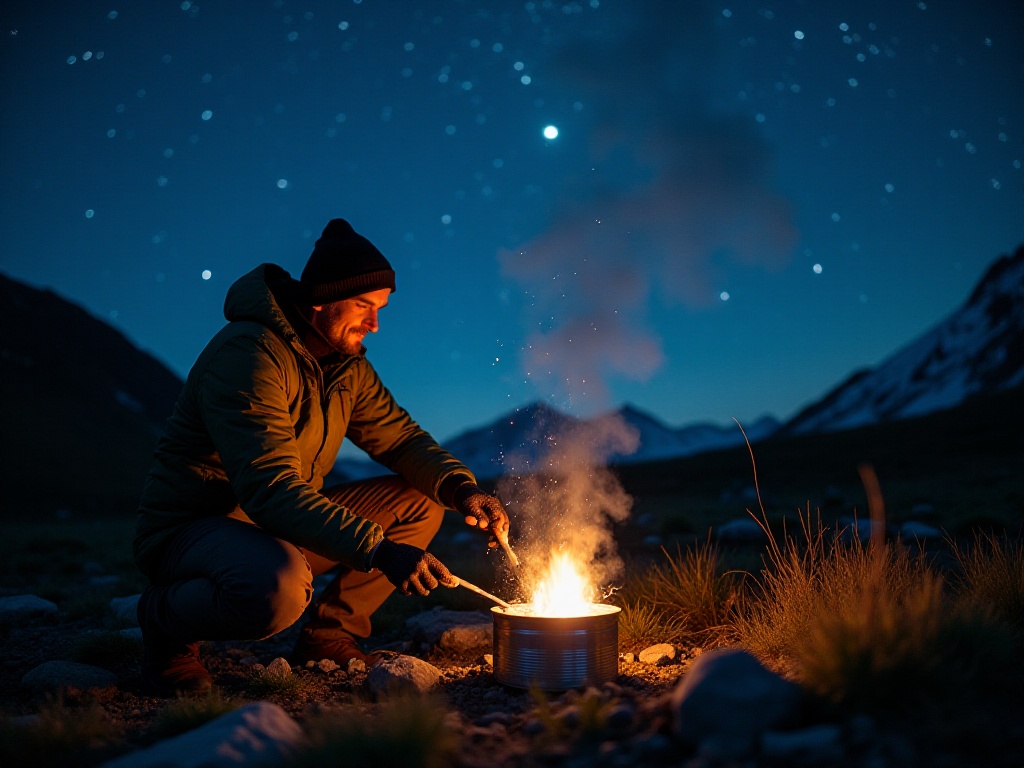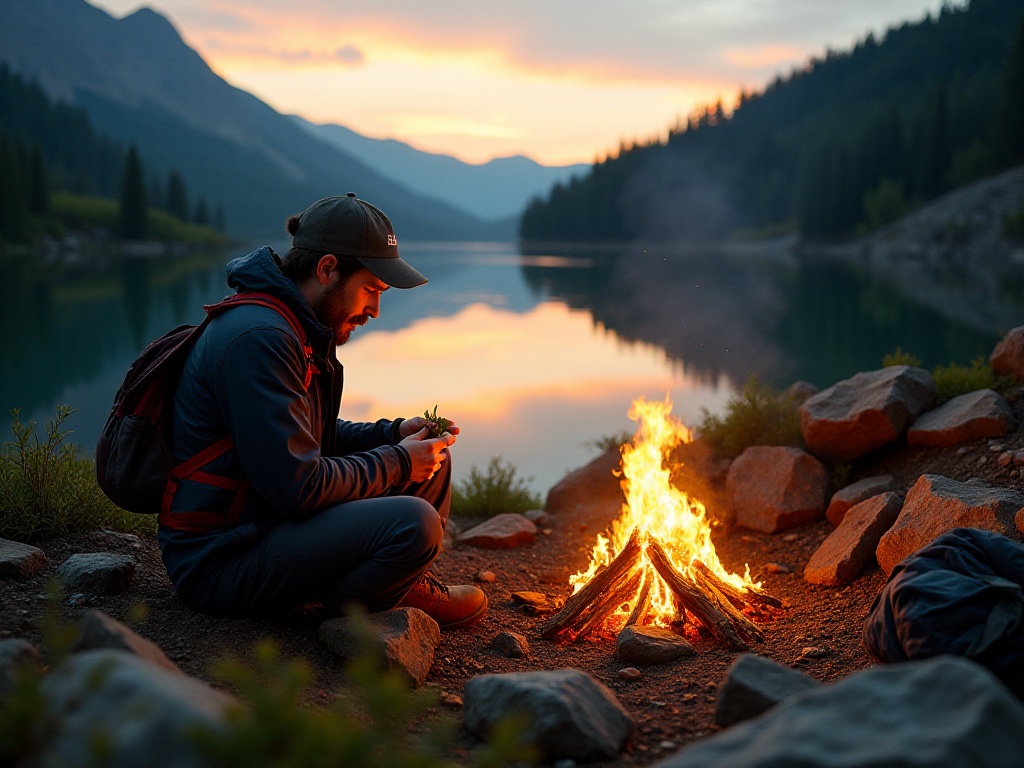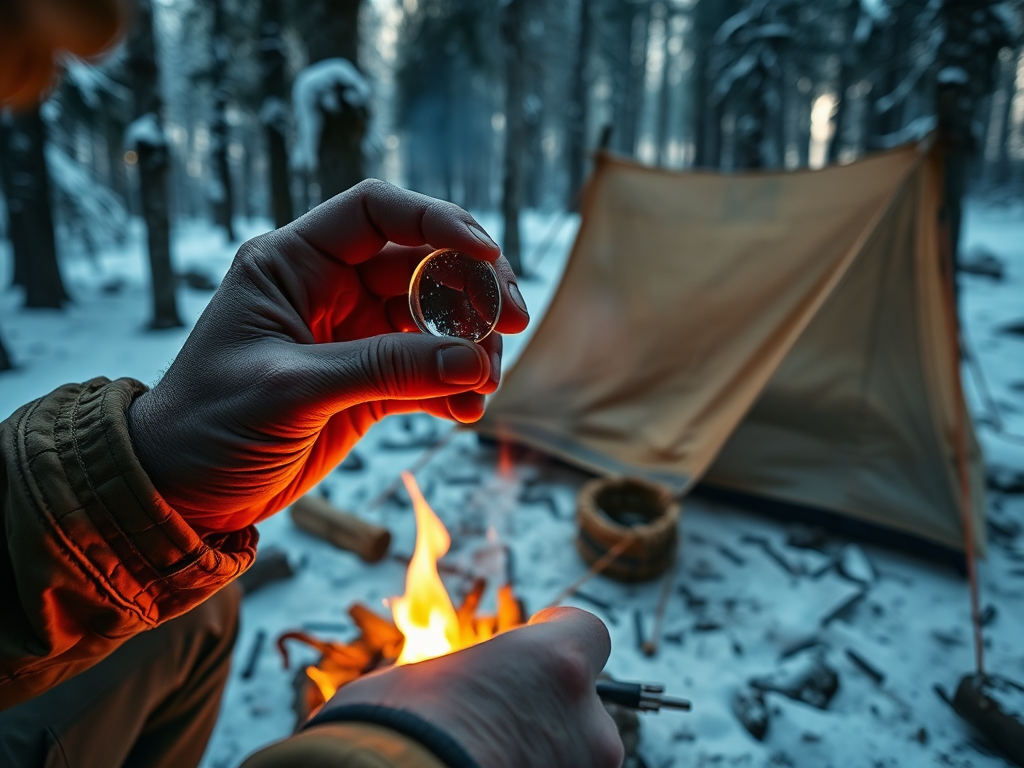Opening Thoughts
Honestly, when I first saw that starry sky, I was completely amazed! Lying in my sleeping bag, looking up at the countless stars - that feeling was absolutely incredible! Looking back at my first camping experience now, it was both funny and embarrassing. The tent I set up was crooked even after spending ages on it, and I had to borrow a sleeping bag from someone else. At the time, I wished someone had told me what to prepare and what to watch out for. After years of trial and error, I've finally accumulated quite a bit of experience, which I'd like to share with everyone today.
Preparations
Truth be told, many outdoor accidents happen not because of bad luck, but because of inadequate preparation. I had a friend who thought he was physically fit and went hiking without even bringing a compass. He ended up wandering in the mountains for an entire day before finding his way out, scaring all of us. Later, I checked the data and found that the number of outdoor enthusiasts needing rescue due to insufficient preparation is quite significant - on some popular hiking trails alone, hundreds of people need rescue each year.
So what's the first step? You must let someone you trust know about your itinerary! This is no joke. Now, before every trip, I send detailed plans to my parents and close friends, including specific locations, planned routes, expected return time, and even marking supply points and emergency evacuation routes. Seems troublesome? Trust me, this could be the most important safety measure.
Understanding the destination environment is also particularly important. Last year, I saw many people taking photos at a scenic spot where there was a large patch of poison ivy - they had no idea that touching it could make them miserable for days. Different regions have different dangerous plants and animals, so it's really necessary to learn about them in advance. For instance, poison oak, poison sumac, and poison ivy in North America harm many people every year - over 500,000 people seek medical attention just because of these three "poison kings."
Weather conditions must also be checked in advance. I remember once when a group of us were planning to go camping, but we saw a forecast for possible heavy rain. Although the sky was clear at the time, we decided to postpone. That night, there was indeed a super heavy rainstorm that caused flash floods. This made me even more convinced that it's better to over-prepare than not prepare at all.
Another often overlooked point is physical conditioning. Many people think outdoor activities are just about having fun when you get there, but that's not the case. I recommend starting targeted physical training at least a month before departure. For example, if you're going mountain climbing, you should practice climbing stairs; if you're going hiking, it's best to train with weighted walks. This not only makes the activity easier but also greatly reduces the risk of injury.

Equipment List
When it comes to equipment, there's endless wisdom to share. The first thing I want to recommend is a reliable outdoor knife. Don't underestimate this tool - it's truly a treasure chest for outdoor activities. I've used it not only to cut fruit and repair equipment, but once even to cut through a trapped climbing rope, saving my own life. When choosing a knife, quality is crucial - you definitely get what you pay for here.
Regarding waterproofing, I learned this lesson the hard way. Once during a hike, my backpack wasn't waterproofed, and after a light rain, everything got soaked - I didn't even have dry clothes to change into. It was absolutely miserable. Since then, I've been particularly careful about this, not only buying a rain cover for my backpack but also putting important items in waterproof bags. Last year, an outdoor equipment survey showed that 90% of experienced players pay special attention to waterproofing - this statistic isn't exaggerated at all.
Multipurpose tape is truly a miracle tool for outdoor activities. It can be used for emergency equipment repairs, blister prevention, and even as medical tape in crucial moments. I never leave home without it, and to save space, I wrap it directly around my water bottle or trekking poles. I learned this clever trick from a veteran player - it's super practical.
Speaking of equipment, I must mention thermal gear. Many beginners think that just wearing thick clothing is enough, but that's not the case. The most important thing in outdoor activities is the layering system. The innermost layer needs to wick away sweat, the middle layer is for insulation, and the outer layer should be wind and waterproof. This way of dressing not only prevents you from getting too hot during activity but also keeps you warm during rest.
Lighting tools are also essential. Besides the main light source, I always carry two backup lights. Because in the wilderness, once it gets dark, you can barely move without lighting equipment. Today's LED headlamps are both lightweight and energy-efficient - I strongly recommend getting one.
Positioning and navigation tools are also important. Although phones now have GPS functionality, in the wilderness, your phone might have no signal or run out of battery. So I always carry a professional handheld GPS device, along with paper maps and a compass as backup. This equipment reserve might seem excessive, but it can really save lives in critical moments.

Survival Skills
When it comes to core wilderness survival skills, finding water, building shelter, and making fire are the most basic. In extreme conditions, people can face life-threatening situations after three days without water, and in cold environments, danger can occur within hours without proper warmth. So these skills are truly matters of life and death.
Finding water may sound simple, but it's really not easy. First, you need to learn to observe the terrain - generally, water sources are easier to find in valley lowlands. But even after finding water, you can't drink it directly - it must be purified. I usually carry portable water filters and purification tablets to ensure water safety.
Building shelter is truly a science. First, you need to choose the right location - the terrain should be slightly elevated, away from potential rockfall areas, and you need to pay attention to wind direction. The first time I set up my own tent, I didn't consider wind direction and spent the entire night listening to the tent flapping in the wind - it was absolutely nightmarish.
Fire-making skills are even more important - it's not just for barbecuing. In the wilderness, fire helps you stay warm, boil water, cook food, repel insects, and send distress signals - it has so many uses. So I suggest everyone master multiple fire-starting methods, like using fire steels and magnifying glasses, and even primitive friction fire methods as a last resort. It might seem excessive, but these skills could come in handy at any time.

Emergency Management
The most important thing in emergency situations is staying calm. It's easier said than done, but it's really crucial. Data shows that in 80% of wilderness emergencies, panic causes the situation to worsen. So remember the "STOP" principle: Stop first to calm down, Think about your current situation, Observe your surroundings, and then Plan your response.
Distress signals are also important skills. The international distress signal is any form of three repetitions: it could be three whistle blasts or three flashlight flashes at night. That's why outdoor enthusiasts always carry a survival whistle - it's lightweight but can truly save lives in critical moments.
You also need to learn to recognize trail markers and terrain features. For example, you can determine direction from tree rings, and animal tracks might lead you to water sources. While these skills might not be used often, they could become life-saving tools in emergencies.

Survival Wisdom
When it comes to wilderness survival, many people think physical strength is most important, but the importance of mindset is often underestimated. Studies show that people who maintain a positive attitude during wilderness emergencies have a 40% higher chance of rescue than those who are pessimistic. This statistic really shocked me and helped me understand why experienced outdoor enthusiasts always emphasize the importance of mindset.
Environmental awareness is also a crucial part of outdoor activities. As outdoor sports enthusiasts, we should not only enjoy the wonderful experiences nature provides but also learn to protect it. For instance, a carelessly discarded plastic bag takes 10-20 years to decompose, while an aluminum item might need 200-500 years. Therefore, we must strictly follow Leave No Trace principles, taking out everything we bring in, without adding any burden to nature.
Team spirit is also important in outdoor activities. I often see some people being overly self-reliant, always thinking they can handle everything, but end up causing trouble for the team. In the wilderness, no one is completely independent - we all need to help and look out for each other. I remember once during a hike, my trekking pole broke, and my teammate immediately lent me their spare without hesitation - this kind of mutual support really warms the heart.
Another point is learning to choose activities suitable for your ability level. I've seen too many people attempting extremely difficult routes right from the start, only to end up in terrible situations. Gradual progression is really important - start with simple routes, slowly accumulate experience, and this way you can truly enjoy outdoor activities.

Conclusion
Having read this far, don't you think outdoor activities aren't as scary as imagined? Indeed, with adequate preparation and proper methods, outdoor adventure can be both safe and enjoyable. If you have any unique outdoor experiences, feel free to share them in the comments section so we can learn from each other.
Remember, nature is our shared playground for exploration and a home we need to protect together. Are you ready? Pack your bags, and let's experience the magic of nature together! Trust me, when you're standing on the mountaintop watching the sunrise, all the hardship becomes worthwhile.







